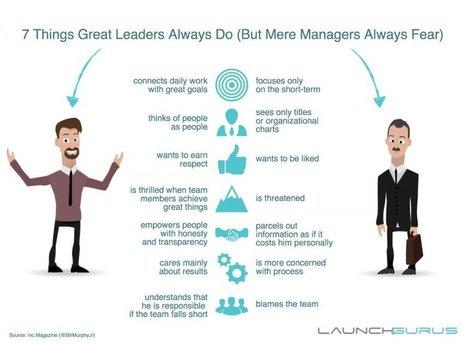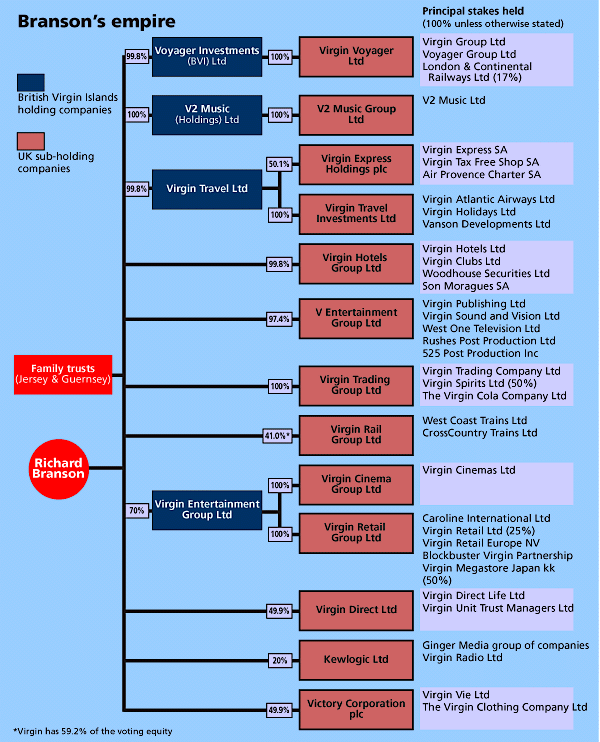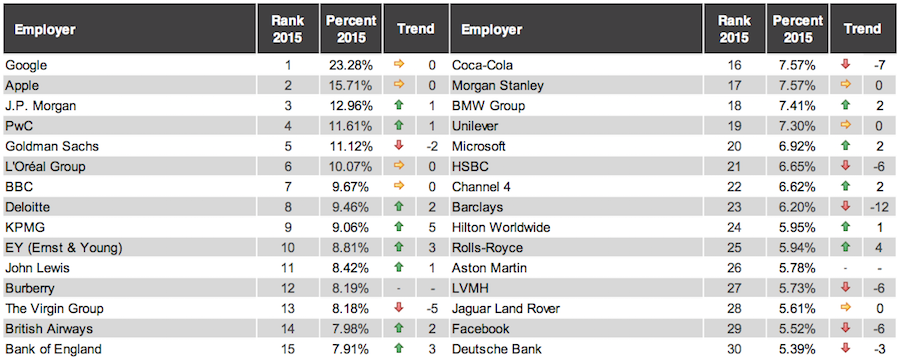Executive Summary
Customers are the likely determinants of companies’ decisions to expand their product portfolios, re-engineer their existing products, and reinvent new product offers. The classical organizational theory holds that organizations should primarily deliver excellent product value to secure competitive advantage. However, this paper argues that Richard Branson places customers in the second position while his employees are given priority.
However, Branson’s philosophy has worked to the extent that he wonders why other organizations have not yet adopted employee-centered business management approaches. This paper discusses Richard Branson’s leadership styles. The goal is to show how such styles fit into his philosophy, including their implications to his groups of business and employees.
Introduction
Who is Richard Branson?
Richard Branson is the CEO of the Virgin Group of companies. Appendix 2 shows the empire that Branson heads. The UK-born and raised businessperson has the objective of building a huge brand by simply focusing on customer service. Indeed, in his various investments that range from Virgin Atlantic, all the way to virgin mobile, Branson contends that every new venture focuses on customer service as the factor that determines success. To highlight this commitment, Branson declined to attach Virgin Group’s name to a newly acquired company until customer services at the organization were at par with those of the rest of Virgin Group’s investments. Branson is a leader who believes in the capability of employees in driving the competitive advantage of his group of companies.
His Leadership Style
Richard Branson’s leadership style depends on the situation that requires his leadership, rather than management. Appendix 1 shows why Branson is more of a leader than a manager. Branson believes that the organizational transformation process is a continuous activity. Therefore, he applies transformational leadership in all circumstances. His leadership style opposes traditional business knowledge, which contends that organizations should put customers first. For example, the classical organizational theory suggests that customers are always right and that the conduct of the organization, including that of its employees, should reflect on the customers’ needs (Raymundo 2015). However, Richard Branson does not deploy this approach. Rather, he puts his employees first.
Findings and Discussion
Richard Branson Behaviour
Richard Branson possesses inspirational behavior. He refused to incorporate a newly acquired company under the brand name of Virgin Group until it had attained the standards, other groups of companies, in terms of customer service.
Hence, Branson possesses transformational leadership behaviors since he believes it is possible to transform the company’s customer service standards. Transformational leaders enjoy everything they do in the line of duty while putting at bay their concerns (Bass & Steidlmeier 2002). Transitional leadership is one of the key tasks that may make leaders’ personalities, aspirations, and thoughts influence the way one leads his or her followers (Brooks 2009). However, Richard Branson is only concerned about the experiences of his employees with the organization.
Instead of complaining about the way employees do their jobs, in the case where deficiencies in customer service are identified, he communicates with them to find out the underlying causes. Hence, he is always committed to transforming how employees interact with the organization. Richard Branson is disciplined, precise, and accurate, candid, enthusiastic, and more cautious in his deeds. His character and behavior make him a role model for his followers. Besides inspiring them, he makes them interested in what they do for the benefit of the company’s customers and shareholders.
Identifiable Traits of Richard Branson
Richard Branson portrays traits such as being an ardent communicator, charismatic, and extraversive. He is also a good role model. People who would like to emulate role models admire them (Hogan & Hogan 2008). For example, Branson is hopeful and confident in his leadership style. Indeed, he possesses traits such as caring for others and setting a good example for his followers. He is good at listening to others’ ideas and opinions. According to Richard Branson, a good role model believes in others, trusts, and shows confidence in them (Hi-Tec Holdings 2006)
Although Branson has deployed his traits successfully, it cannot be argued that the trait leadership theory exemplifies his success. For example, Richard Branson is a compelling leader. Levay (2010) demonstrates that compelling leadership traits are not necessarily a requirement for leading through change. Therefore, besides the strengths of Richard Branson’s traits of effectively leading the Virgin Group, his traits also expose him to some weaknesses.
For example, by permitting employees to participate in the decision-making process without putting some bureaucratic checks and limitations, the Virgin Group becomes overly exposed to risks. Investment in any new opportunity, perhaps one that is not even related to the current line of business, increases his risks.
Impact of Branson’s Leadership Style on the Organisation and Employees
Branson’s leadership style has enabled Virgin Group to withstand many challenges, including changing the operational environment. This accomplishment has been possible since Branson leads irresistibly.
Groves (2005) demonstrates that charismatic traits relate to employee openness in embracing change that is necessary to address any emerging situations and problems. Branson’s leadership style has been pivotal in creating highly motivated work teams. In fact, in developing a teamwork consensus, Branson ensures that all employees are empowered (Hi-Tec Holdings 2006). He has developed a working environment that enables people to have fun with a teamwork culture. This strategy has the effect of boosting employee work morale.
Branson believes that employees are the key to the success of any business venture. Therefore, it is necessary to offer adequate attention to their perceptions about the necessary steps for supporting the growth of Virginia Group. For example, employees’ opinions are highly prioritized. This situation illustrates a well participative leadership style, which Kedharnath (2011) argues that it works well in an organizational setting where employees have high-skill levels and knowledge. Richard Branson seeks to keep employees motivated in several ways such as delegating responsibilities and adopting a participative leadership style as the primary way of securing their productivity, high work morale, and retention.
The extent to which Branson’s Leadership Styles Depend on Employees’ Characteristics and Personalities, the Nature of the Organisation, and the Wider Business and Economic Context
According to Buchanan and Huczynski (2010), the modern organizational economic context in which many organizations compete for profitability underlines the importance of focusing on growth strategies on customers. Therefore, one would anticipate Branson’s business philosophy to be anchored on customers. However, this expectation is not the case. Branson’s business philosophy is employee-centered.
Branson’s leadership styles depend on the characteristics and personalities of employees to the extent that at Virgin Group’s employees are the priority, followed by customers and the shareholders. Branson’s awareness of this fact led his company to appear in the top-ten best-performing organizations worldwide as shown in Appendix 3. This plan implies attracting additional clientele and/or retaining the existing ones. Consequently, shareholders also become happy since they acquire optimal benefits from the investments.
Virgin Group upholds interaction between employees and customers in the process of service delivery. Consequently, Richard Branson’s leadership styles depend on the nature of the organization to the extent that he adopts a human relations approach to organizational management. The development of the human relation theory began in the 1920s. During this time, the focus of the business was on enhancing productivity. The human relations theory argues that people have the desire for supporting work teams, which guarantee growth and development. Consistent with the theory, Branson’s leadership focuses on building effective work teams (Hi-Tec Holdings 2006). Branson is a team builder. He possesses the ability to develop teams and/or enhance employee motivation.
Branson’s leadership styles depend on the wider business context to the extent that he portrays the characteristics of a global leader. He has highlighted the ability to expand small business establishments to become globally trading enterprises. The actual realization of the efforts of expanding Virginia Group to become a collection of a successful business empire, including airlines and other service sector businesses that have a global appeal justifies this assertion.
Branson displays good leadership approaches. Other organizations benchmark from his leadership approaches. For example, Richard Branson has incredible motivational skills. Their use has raised the productivity of Virginia Group. His success strategies are deployable in organizations that seek to grow globally.
Why Branson’s Leadership is Different from that of Steve Jobs
Although Apple Company is among the best-performing businesses in the world, thanks to Steve Jobs’ leadership, one may be tempted to assume that Branson’s leadership is similar to that of Apple Company’s boss. According to Lubin (2011), Branson’s headship is completely different from that of Steve Jobs. For instance, while Jobs demonstrates his hatred for mistakes done by his workers through shouting at them, Branson handles such mistakes with compassion because his employees are an invaluable asset to his company and hence the reason why he has to handle them with care when they err. Besides, while Branson entrusts most of his tasks to his employees, the situation is different for Steve Jobs who manages his responsibilities by himself without delegating any tasks to his workers.
Conclusion
Organizational behavior refers to the study of various persons who work within an organization coupled with their behaviors within the paradigm of organizational operations. For the case of Virgin Group, its CEO, Richard Branson, spells out the types and the preferred values that his group of businesses should uphold. The most significant value is the recognition of the position of employees in driving the competitive advantage of the Virgin Group.
Employees have the freedom to express their concerns about how the organization treats them, including areas that need improvement, to ensure they are always happy. The objective is to increase employee motivation and commitment to the organization with the main goal of ensuring that they deliver satisfactory services to customers for shareholders to reap optimally from their investments.
Recommendations
Richard Branson believes that all organizations can be transformed into profitable entities through happy employees. Therefore, he acquires new companies even though they may be having operational challenges. He anticipates that by managing employee issues well, such organizations would raise the standards of their customer services, which drive them towards the path of profitability. This process involves taking immense risks since such entities may be performing poorly due to reasons that cannot be overcome by the strengths of his group of businesses. Therefore, Branson should invest in acquiring new firms after conducting a thorough risk analysis. Incorporation of risk management paradigms in Richard Branson’s decision-making processes is also highly recommended.
References
Bass, B & Steidlmeier, P 2002, ‘Ethics, character, and authentic transformational leadership behaviour’, The Leadership Quarterly, vol.10, no. 2, pp. 181- 237.
Brooks, I 2009, Organisational Behaviour, Pearson Education Ltd, New York, NY.
Buchanan, D & Huczynski, A 2010, Organisational Behaviour: An Introductory Text, Prentice Hall, Upper Saddle River, NJ.
Groves, K 2005, ‘Linking leader skills, follower attitudes, and contextual variables via an integrated model of charismatic leadership’, Journal of Management, vol. 31, no. 2, pp 255-277.
Hi-Tec Holdings 2006, Profiles of leadership. Web.
Hogan, R & Hogan, J 2008, ‘Assessing Leadership: A View from the Dark Side’, International Journal of Selection and Development, vol.9, no. 2, pp. 40-51.
Kedharnath, U 2011, ‘The influence of leaders’ implicit followership theories on employee outcomes’, Organisational Behaviour and Human Decision Processes, vol.7, no. 5, pp. 1-24.
Levay, C 2010, ‘Charismatic leadership in resistance to change’, The Leadership Quarterly, vol. 21, no.1, pp. 127-143.
Lubin, G. (2011). Richard Branson Explains Why He Is The Opposite Of Steve Jobs. Web.
Raymundo, O 2015, Richard Branson: Companies Should Put Employees First. Web.
Appendix


